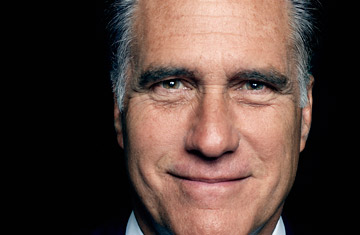
(7 of 11)
Among Romney's more controversial forays into the legal gray zone involved a department-store merger in 1988 that depended on help from Michael Milken, a notorious Wall Street figure known as the junk-bond king. Romney needed Milken's high-risk, high-yield debt instruments for the transaction, among his most highly leveraged yet, because there was no other way to borrow so much money with the available collateral. He decided to proceed with the deal even after the Securities and Exchange Commission brought insider-trading charges against Milken and his firm, Drexel Burnham Lambert, in September of that year. Because the judge in the SEC case was married to the chairwoman of one of Romney's department stores, the transaction led to conflict-of-interest litigation that delayed a trial for months. (Milken and his firm each eventually pleaded guilty to felony securities violations unconnected to the department-store buyout. He was sentenced to 10 years in prison, and Drexel was forced into bankruptcy.)
Romney's behavior, former SEC official James Coffman told the Boston Globe, "at a minimum reflects a lack of concern about the impact of his financing activities on the administration of justice." Wolpow, who was then at Drexel but was not charged with an offense, says in Romney's defense that "there's no affirmative obligation either in law or in business ethics to stop what you're doing just because there's an investigation." Romney knew it looked bad, but as long as the deal was legal, he had no qualms. Junk bonds enabled his firm to score a $175 million profit with only $10 million of its own capital on the line. In June 2000, not quite three years after Bain Capital cashed out, the debt-laden company, Stage Stores, filed for bankruptcy.
Just as Romney refused to treat legal questions as moral ones, he was matter-of-fact about business decisions that closed factories, crushed unions, outsourced services or threw employees of his companies out of work. Remorseless cost cutting, like aggressive lawyering, was so basic to Bain Capital's livelihood that it could hardly have been otherwise.
Even to ask the question in ethical terms strikes many of Romney's former partners as naive, although none of them care to say so on the record. The purpose of a business is to earn a profit. Paying union workers at inefficient factories for work that can be done more cheaply somewhere else is, by pure capitalist standards, simply irrational. Romney may even have had a fiduciary duty to take harsh measures in the companies he owned in order to advance the interests of his investors. "The job was not creating jobs," says MIT's Anderson. "That was not the goal. The job was to increase the investment that he made ... The by-product may have been in some cases creating jobs. The by-product sometimes was bringing efficiency, which would be not keeping jobs."
